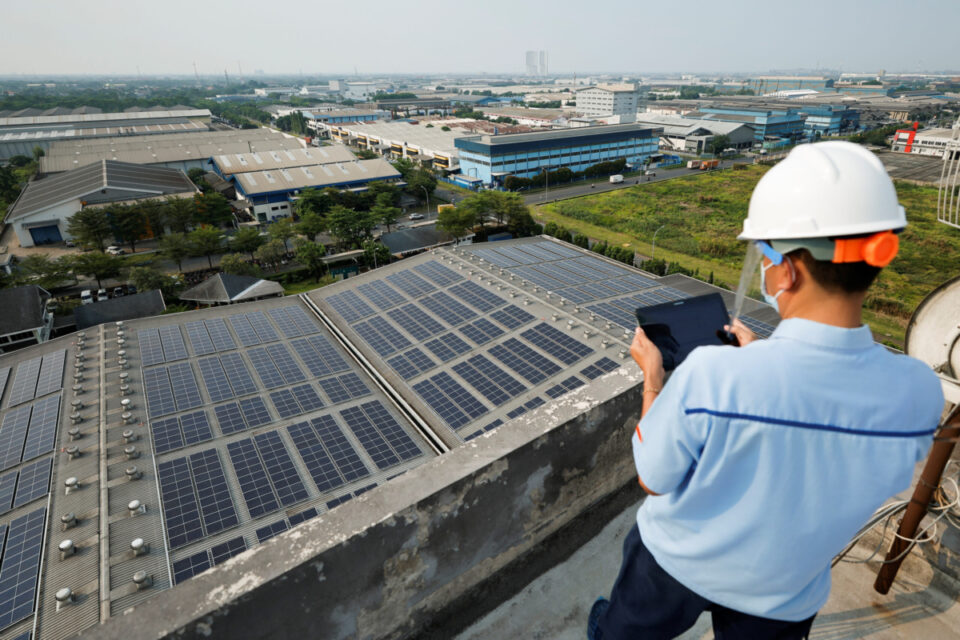KUALA LUMPUR, Aug 21 – Southeast Asia’s demand for electricity has surpassed those of other regions globally, rising by an average of more than 6.0 per cent annually over the past two decades.
According to the International Energy Agency, electricity consumption in Malaysia, Indonesia, Vietnam and Thailand cumulatively account for more than 80 per cent of total electricity demand in the region, amid growing ownership of household appliances and increasing consumption of goods and services.
Although the region is one of a select few where coal-fired power generation has been expanding, the dynamics are expected to change in a few decades as governments in the region look towards increasing renewable energy (RE) share in the power mix.
At the same time, the increased utilisation of energy-efficient technologies for coal-fired power plants will significantly contribute to a reduction in power consumption.
ICPT in Malaysia
The Imbalance Cost Pass-Through (ICPT) is a mechanism under the Incentive Based Regulation framework that allows for an adjustment in the electricity tariff to reflect the changes in fuel and other generation-related costs as these costs are set based on benchmarked prices in the base tariff.
The ICPT, which is reviewed every six months, would reflect the actual costs in tariff in the form of either rebates or surcharges.
Since 2015, the government has successfully implemented 18 cycles under the ICPT mechanism to help cushion the impact of high global fuel prices, including the most recent RM5.2 billion electricity subsidy for the July 1 to Dec 31, 2023 regulatory period.
UiTM Solar Research Institute director, associate professor Dr Nofri Yenita Dahlan said dramatic changes in the energy scenario due to rising energy prices, increasing demand for coal and rapid global economic recovery post-pandemic are inevitable.
“The pressures on the fiscal system due to Covid-19 and rising energy prices necessitated the passing of the cost of energy to the consumers, be they households or companies.”
She added that, as such, some pass-through mechanisms or surcharges that reflect international energy prices are inevitable now and in the future.
Energy-efficient Technologies in Malaysia
To reduce spending on electricity bills, global industries are also accelerating their investments towards energy efficiency as the crucial race toward net-zero emission intensifies.
This entails reducing the amount of energy required to power manufacturing plants, homes, commercial buildings and vehicles through the use of energy-efficient equipment.
In Malaysia, the Energy Commission (EC) introduced energy efficiency rating labels for equipment such as refrigerators, air-conditioners, domestic fans, washing machines, televisions, microwave ovens, electric ovens, rice cookers and lights.
These products would bear the energy efficiency labels which are issued to manufacturers of electrical equipment which comply with the requirements of energy performance standards.
The energy efficiency label indicates the estimated energy consumption by electrical equipment using a star rating system, with five stars being the most efficient and one star the least efficient.
For the record, only those with a minimum of two stars are allowed to enter the Malaysian market.
Although five-star equipment may be slightly pricier, consumers will be able to enjoy savings on their electricity bills in the long run.
Government’s Commitment to Transition Towards RE
Government incentives also play a role to encourage RE uptake; for example, the Net Energy Metering (NEM) scheme for the people, the NEM Rakyat, has seen positive uptake with only 45 per cent of the quota left until Dec 31, 2023.
Under the scheme, those who use their own solar photovoltaic (PV) panels to generate electricity can export the excess energy to the national utility company Tenaga Nasional Bhd (TNB) electricity grid in exchange for credits which can be used to offset their electric bill.
To further encourage the installation of solar PV systems, the government has also eased the requirements under the NEM programme and Self-Consumption for Solar PV Installation (SelCo) programme through measures such as:
- the relaxation of the capacity limit for each household applying for the NEM Rakyat programme;
- the increase in the allowable capacity for solar PV systems under the NEM Nova programme and SelCo programme from 75 per cent to 85 per cent; and
- the opening up of applications and participation by high-voltage consumers under the SelCo programme.
TNB will also announce several enhancements to encourage the installation of solar PV systems.
“We do feel additional government support and incentives can help spur home solar adoption, for example, personal tax relief, similar to one claimable for purchases of computers,” said Plus Xnergy group chief executive officer/executive director, Ko Chuan Zhen.
Plus Xnergy is a clean energy solution provider that has outfitted more than 700 homes, 130 commercial and industrial buildings (between 2012 and 2019) and 126 buildings (2020-2021) with solar PV panels.
Ko lauded the government’s move to prioritise environmental sustainability in Budget 2023.
“By being committed to improving the balance of economic growth and environmental sustainability, the government would not only unlock more job and reskilling opportunities but also create opportunities for mitigation of energy shortages in rural regions by providing clean and affordable energy,” he said.
Ko also highlighted positive actions taken by the government to support the green agenda, including the National Energy Policy 2022-2040.
“Initiatives include unlocking potential solar resources, extension of the NEM scheme, and allowing businesses to access RE to power system advancements, including investments in the grid and energy storage among others,” he added.
Energy Efficiency and RE: the Way Forward
In Malaysia, there are many ways for consumers to reduce their electricity bills. One can save a lot of money on utility bills with just a few upgrades, including using energy-efficient equipment and installing solar PV panels.
Ko is optimistic about the future of RE, saying that affordable consumer solar solutions help to encourage commercial users and households to adopt more environmentally-friendly energy solutions.
“Our nation is headed in the right direction, and we see good progress, especially with the announcement by our government on the allocation and redistribution of a new quota for RE.”
— Bernama





